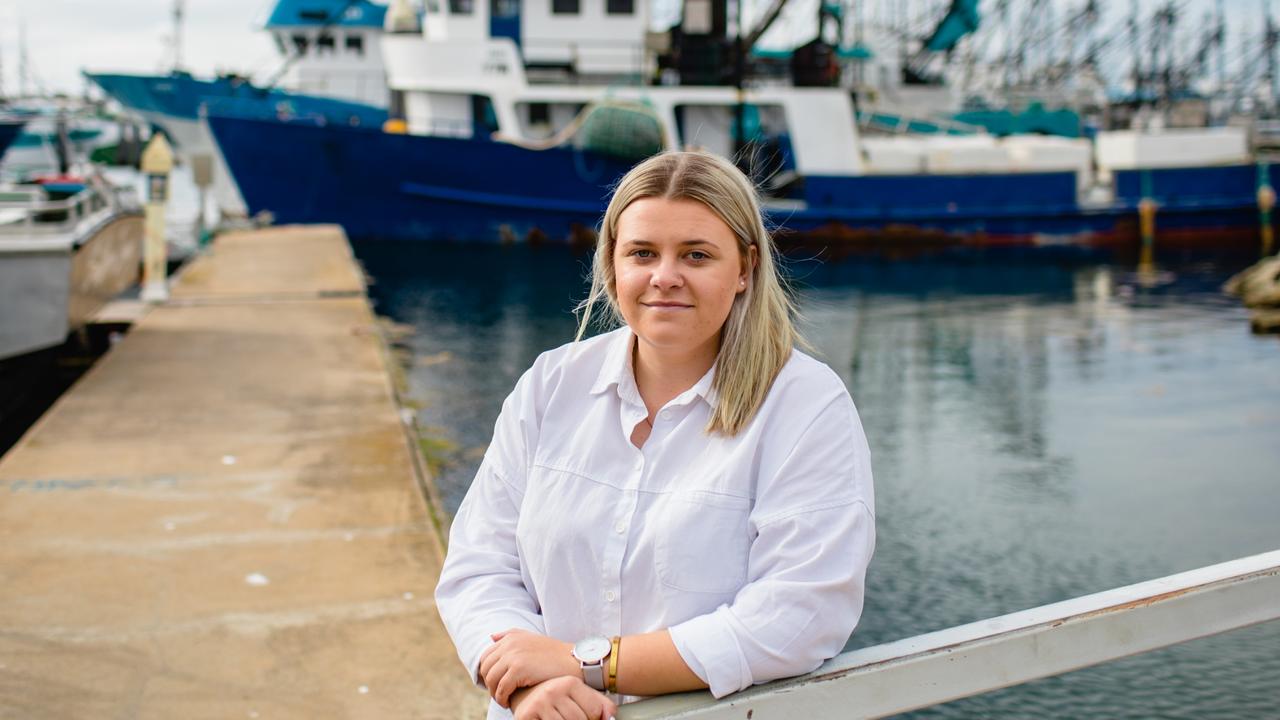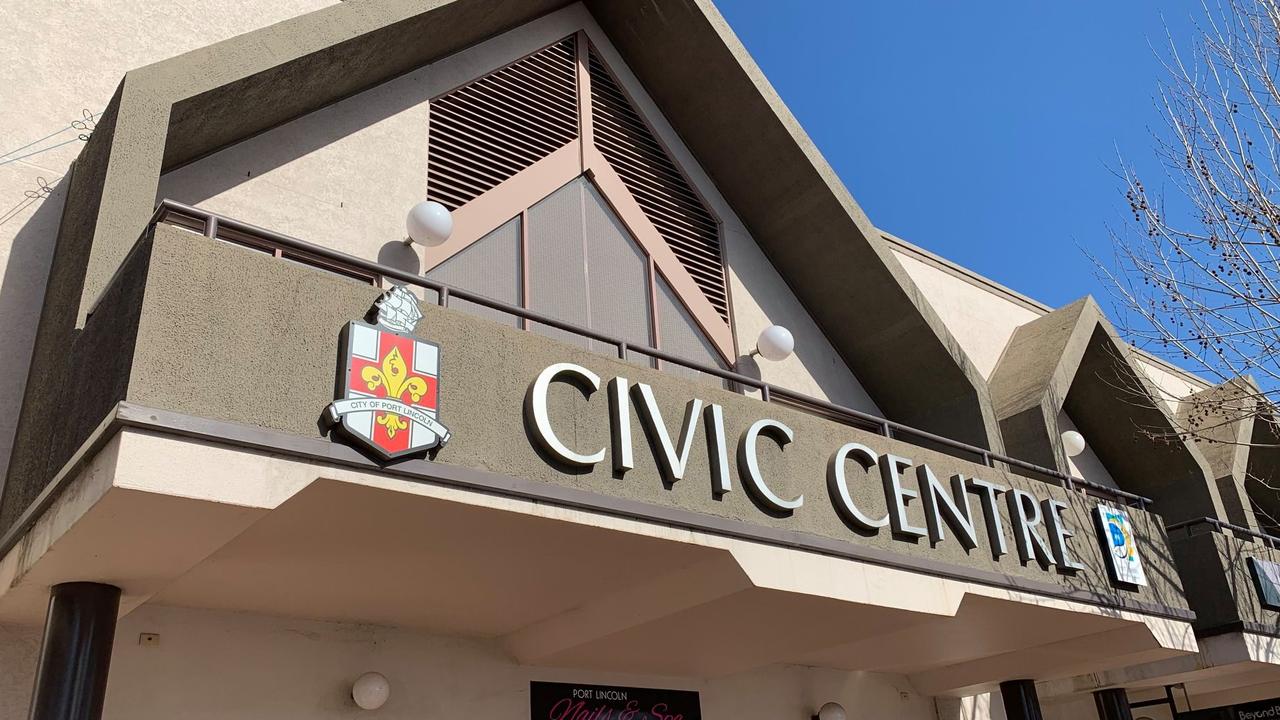Our tribute to the first Gallipoli anniversary
To commemorate Anzac Day on Monday, we republish The Advertiser’s coverage of the first Gallipoli anniversary, dated Tuesday, April 25, 1916.
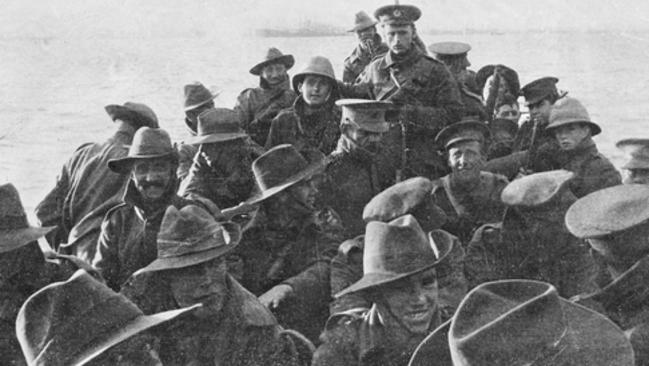
TO commemorate Anzac Day on Monday, we republish The Advertiser’s coverage of the first Gallipoli anniversary, dated Tuesday, April 25, 1916.
GENERAL BIRDWOOD
VISIT TO HAREFIELD.
INSPECTING THE WOUNDED.
LONDON, April 24. General Sir Wm. (William) Birdwood, Commander in Chief of the Australian forces, accompanied by Lady Birdwood and his son and daughter, were the guests of Mr Billyard Leake to luncheon at Harefield Convalescent Hospital on Easter Sunday.
They afterwards visited the hospital under the guidance of Colonel Hayward and Acting Matron Pratt of Melbourne. General Birdwood vetoed the arrangements made for him to address the men in the entertainment hall as he preferred to see them individually.
He thoroughly inspected the wards, and he conversed and shook hands with every patient. He had the most cordial reception from soldiers, all of whom have been on the sick list for months. Many cherished warm recollections of General Birdwood’s cheery presence and encouraging words on Gallipoli Peninsula.
The men stood smartly to attention, and smilingly answered the questions concerning their regiment, the nature of their wounds, and whether or not they are able to return to the front. When he was leaving some of the seriously injured men, General Birdwood merely shook his head and gripped the patient’s hand.
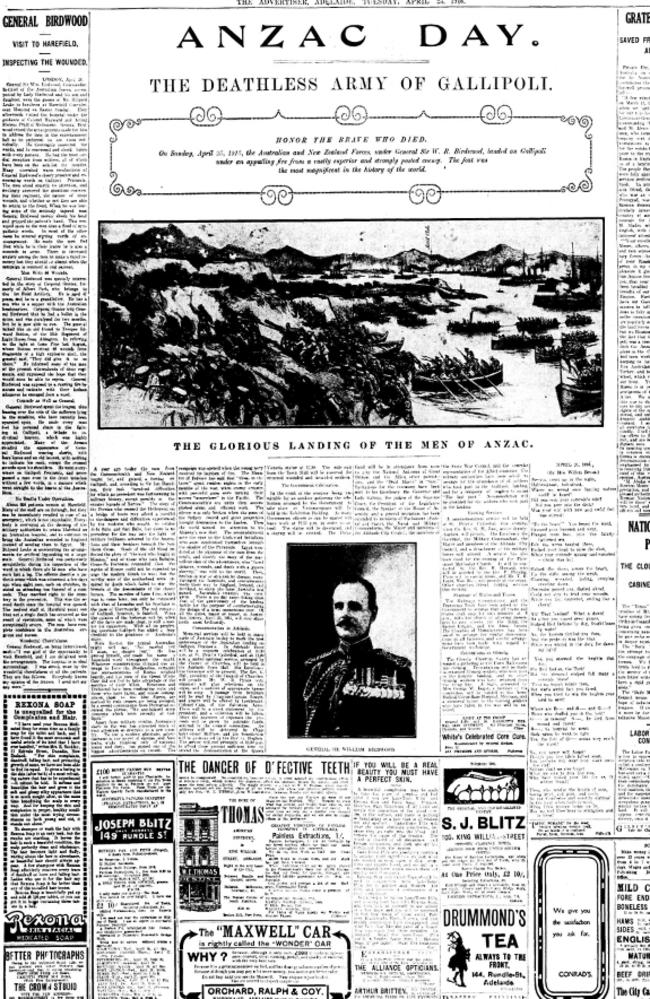
This conveyed more to the men than a flood of sympathetic words. In most of the other cases he uttered stirring words of encouragement. He made the men feel that while he is their leader he is also a comrade in arms. There is increased anxiety among the men to make a rapid recovery, lest they should be absent when the campaign is resumed in real earnest.
MAN WITH 46 WOUNDS.
GENERAL Birdwood was specially interested in the story of Corporal Gunter, formerly of Albert Park, who belongs to the 1st Field Artillery.
He is aged 47 years and he is a grandfather. He has a son who is a sapper with the Australian headquarters. Corporal Gunter told General Birdwood that he had a bullet in the spine, and was paralysed for two months, but he is now able to run. The general talked like an old friend to Trooper Edward Sutton, of the 13th Regiment of Light Horse, from Altington. In referring to the fight at Lone Pine last August, where Sutton received 46 wounds from fragments of a high explosive shell, the general said: “They did give it to us there.’’ He informed many of the men of the present whereabouts of their regiments, and expressed the hope that they would soon be able to rejoin. General Birdwood was exposed to a running fire by nurses and patients with their kodaks whenever he emerged from a ward.
COMRADE AS WELL AS GENERAL.
GENERAL Birdwood spent the longest time leaning over the cots of the sufferers lying in the sunshine, who have recently been operated upon. He made every man feel his personal share in the fighting at Gallipoli, a tribute to individual bravery, which was highly appreciated.
Many of the Anzacs recalled the appearance of General Birdwood wearing shorts, with bare knees and an old helmet, with nothing to indicate his rank, except the crossed swords upon his shoulders. He went everywhere on Gallipoli Peninsula, and never passed a man even in the front trenches without a few words, in a manner which went straight to the hearts of the Australians.
NO DEATHS UNDER OPERATIONS.
ABOUT 200 patients remain at Harefield. Many of the staff are on furlough, but they can be immediately recalled in case of an emergency, which is not improbable. Everybody is overjoyed at the decision of the military authorities to retain Harefield as an Australian hospital, and to continue to bring the Australian wounded to England instead of sending them to Egypt. Mr. Billyard Leake is accelerating the arrangements for artificial leg-making on a larger scale. General Birdwood was particularly sympathetic during his inspection of the ward in which there are 13 men who have each lost a leg. The officers describe a pathetic scene which was witnessed a few days ago when eight men, each on crutches, insisted on attending the funeral of a comrade.
They marched right to the cemetery in the procession. This was the second death since the hospital was opened.
The medical staff at Harefield point out that not a single death has occurred as the result of operations, some of which were exceptionally severe. The men have complete confidence in the Australian surgeons and nurses.
WONDERFUL CHEERFULNESS.
GENERAL Birdwood, on being interviewed, said: “I was glad of the opportunity to visit Harefield, and I am delighted with the arrangements. The hospital is in ideal surroundings. I was struck most by the wonderful cheerfulness of all the patients. They are fine fellows. Everybody knows my opinion of the Anzacs. I need not say any more.”
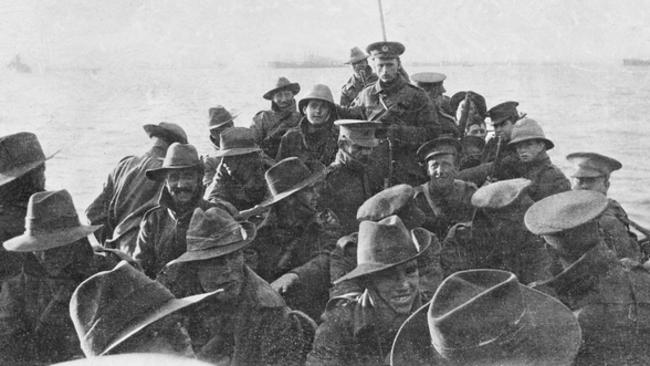
HONOR THE BRAVE WHO DIED.
ON Sunday, April 25, 1915, the Australian and New Zealand Forces, under General Sir W.R. Birdwood, landed on Gallipoli under an appalling fire from a vastly superior and strongly posted enemy. The feat was the most magnificent in the history of the world.
THE GLORIOUS LANDING OF THE MEN OF ANZAC.
A YEAR ago today the men from the Commonwealth and New Zealand fought for, and gained, a footing on Gallipoli, and, according to Sir Ian Hamilton, their task “involved difficulties for which no precedent was forthcoming in military history, except possibly in the sinister legends of Xerxes.”
The story of the Persian who crossed the Hellespont on a bridge of boats may afford a parallel to the dangers and difficulties experienced by the moderns who sought to subdue Achi Baba and Sari Bahr, but there is no precedent for the leap into the light of military brilliance achieved by the Australians and their brothers beneath the Southern Cross.
Stock of the old blood reflected the glory of “the men who fought at Minden,” and of those who took Badajoz. Granville Fortescue contended that the myths of Homer could not be expected to urge the modern Greek to war, but the worthy sons of the motherland were inspired by deeds which failed to stir the breasts of the descendants of the classic heroes.
The sacrifice of Lone Pine, which was to come later, can only be compared with that of Leonidas and his Spartans in the pass of Thermopylae. The red romance of Gallipoli, however, is finished. What the opinion of the historian will be, when all the facts are made clear, is still a matter for conjecture.
With, all its perplexing questions Gallipoli has added a hundredfold to the greatness of Australia’s name. With Hector, the typical Australian might well say, “No martial toil I shun, no danger fear.”
He has proved himself, and made his name a household word throughout the world. Whatever considerations dictated the attempt to force the Dardanelles, certainly the representations of Russia weighed heavily, and the men of the Great White Czar did not fail to take advantage of the sacrifice of their Allies.
Erzeroum and Trebizond have been vindicating feats, and those who have fallen, and whose resting places, close to the blue Aegean, are marked by rude crosses, are being avenged.
In a recent communique from Petrograd occurred the phrase: “We annihilated some elements which were recently at Gallipoli.” Apart from military results, Australia’s share in the war has attracted much of that attention so desirable to a new country.
To use a modern platitude, advertisement is the secret of success, and Australia, while thinking only of national honor and duty, has gained one of the biggest advertisements on record.
The campaign was opened when the young navy received its baptism of fire. The Minister of Defence has said that “those in the know”’ spent restless nights in the early months of the war, when enemy cruisers with powerful guns were turning their screws “somewhere” in the Pacific. The Commonwealth’s sea units then accomplished silent and efficient work. The silence was only broken when the guns of the Sydney roared and great projectiles brought destruction to the Emden. Then the world turned its attention to his Majesty’s new fleet. The accomplishment gave the spur to the khaki-clad battalions who soon established themselves beneath the shadow of the Pyramids. Egypt wondered at the physique of the men from the south, and shortly the story of the marvellous clan of the adventurers, who “faced dangers, wounds, and death with a joyous alacrity,” was told to the world.
Then, broken in war or stricken by disease, many thronged the hospitals, and convalescents made their way to England, Ireland, and Scotland, to enjoy the fame Australia had gained. Australia’s triumph was complete. There is no day more fitting than that of the anniversary of the landing battle for the purpose of commemorating the doings of a most momentous year. Of all the dates, major or minor, in Australian history, April 25, 1915, will ever shine forth most brilliantly.
COMMEMORATION IN ADELAIDE.
MEMORIAL services will be held in many parts of Australia today to mark the first anniversary of the Australian landing on Gallipoli Peninsula.
In Adelaide there will be a requiem celebration at 10.30am at St. Peter’s Cathedral, and at 11.30am a united national service, arranged by the Council of Churches, will be held in the Adelaide Town Hall.
His Excellency the Governor will be present. The Rev. G. Hall, president of the Council of Churches, will preside. Mr. W. R. Pybus (city organist) will play selections on the organ, and a number of appropriate hymns will be sung. A passage from Scripture will be read by Chaplain-Captain Joseph, and prayer will be offered by Lieutenant Colonel Cain, of the Salvation Army. There will be a short statement by the president, and a collection will be taken. After the payment of expenses the proceeds will be given to patriotic funds, selected by the council committee. An address will be delivered by Chaplain-Colonel McPhee, and the benediction will be pronounced by the Rev. G. Hogben.
The service will end promptly at 12.20pm to afford those present sufficient time to attend the demonstration at the Queen Victoria statue at 12.30. The side exit from the Town Hall will be reserved for returned wounded and invalided soldiers.
THE GOVERNMENT CELEBRATION.
IN the event of the weather being unsuitable for an outdoor gathering, the celebration arranged by the Government to take place at Victoria Square will be held in the Exhibition Building.
As many Government officers as can be spared will leave work at 12.25pm in order to attend. The statue will be decorated, and a staging will be erected. The Police Band will be in attendance from noon to play the National Anthems of Great Britain and the Allies, other patriotic airs, and the “Dead March” in “Saul.” Invitations for the ceremony have been sent to his Excellency the Governor and Lady Galway, the judges of the Supreme Court, the President of the Legislative Council, the Speaker of the House of Assembly, and a general invitation has been extended to members of Parliament (Federal and State), the Naval and Military Commandants, the Mayor and members of the Adelaide City Council, the members of the State War Council, and the consular representative of the Allied countries.
The military authorities have been asked to arrange for the attendance of all soldiers who took part in the Gallipoli landing, and for a company of buglers to sound “The Last Post.” Accommodation will be provided for the soldiers who took part in the landing.
EVENING SERVICES.
A COMMEMORATION service will be held at St. Peters Cathedral this evening, when the Rev. G.H. Jose, senior deputy-chaplain, will preach. His Excellency the Governor, the Military Commandant, the Mayor and members of the Adelaide City Council, and a detachment of the military forces will attend. A service has also been fixed for the evening at the Pirie St Methodist Church. It will be conducted by the Rev. H. Howard, who will be assisted by the Rev. P. Fleming. There will be special music, and Mr. T.H. Jones will preside at the organ. Other churches intend holding services this evening.
STOPPAGE OF TRAINS AND TRAMS.
THE Railways Commissioner and the Tramways Trust have been asked by the Government to arrange that all trains and trams shall stop for two minutes at 9am, with the object of allowing passengers to give cheers for the King, the British Empire, and the Anzac heroes. The Chamber of Manufactures has been asked to arrange for similar demonstrations in all factories, and similar arrangements, have been made with regard to Government workshops.
CELEBRATIONS AT GLENELG.
THE Glenelg Cheer-Up Society has arranged a gathering at the Town Hall rooms this evening. Presentations will be made to returned Glenelg soldiers who took part in the historic landing, and to other Glenelg soldiers who have returned from the firing line. A bugle, presented by Mrs. George W. Bagot, a member of the committee, will be handed to the Army Medical Corps Base Hospital, Mitcham, and a memorial tablet to the Glenelg soldiers who have fallen in the war will be unveiled.
POEM: APRIL 24, 1916
By Mrs. Willett Bevan.)
So — you crept up in the night,
Half-exultant, half-afraid,
Where no sound save lapping waters could be heard!
Did you seek your comrade’s side?
Did you peer into the dark?
Was your soul with new and awful feelings stirred?
“To the boats!” You heard the word,
Grasped your bayonet and went,
Plunged from boat into the faintly-lightened sea,
Felt the wires tangled there,
Ducked your head to miss the shot,
While your comrade sprang — vanished — where was he?
Gained the shore, across the beach,
Up the cliffs, among the scrub,
Charging, wounded, hiding, creeping, crawling down,
Comrades passed you, dashed ahead,
Could not stay to tend your wounds,
While you lay, contorted, smiling like a clown!
Ah! That landing!
What a dawn!
As a boy you played great games,
Scalped Red Indians by day, fought bears by night!
Ay, the horrors thrilled you then,
And the pride — it was like that
While you waited in the dark for dawning light!
Yes, you stormed the heights that day; For Red
Indian, the Turk!
But the shrapnel scalped full many a comrade brave!
‘Twas no boyish mimic then,
But war’s awful fact you faced.
When you tried to win the heights your land to save!
Where are B — and S — and G?
Mates who chaffed you in the boat?
G — is missing! S — he died from wound and thirst!
B — to hospital he went; Back again he went to fight.
Yes, the fate of G — seems very much the worst!
No, you never will forget!
Though you live life’s fullest span,
You perhaps will wear your scars unto the end!
Neither shall we e’er forget
What we owe to men like you,
Who have risked your life for us, O soldier friend!
Thou, who read’st the hearts of men,
Seeing grief, and pain, and pride,
Be our Comforter and sanctify distress!
In the hour when faith is weak,
When life’s terrors hedge us in.
May we feel Thee near to strengthen and to bless!
GRATEFUL RUSSIA
SAVED FROM DISASTER BY AUSTRALIA.
PRIVATE Fry, who returned to South Australia on duty in connection with the 1st Australian Stationary Hospital, contributes the following account of the farewell proceedings when the transport left:
“A few minutes before leaving Portland on March 11, that long-awaited Saturday, when we ‘unfits’ boarded the transport for our trip home, we were addressed by Lieutenant-General Sir Newton Moore (commanding the Australians in England) and M. Alexis Aladin, a Russian gentleman, who formed one of a commission of inquiry sent from Russia to make investigations in England into operations for the conduct of the war.
M. Aladin, prior to the war, was Consul-General for Russia in England. Sir Newton assured us of a hearty reception on our return. The people there, as in England, he said, were fully appreciative of the magnificent services performed by their boys in Gallipoli.
In introducing his esteemed Russian friend, the general said, M. Aladin, who was an official representative from Petrograd, was a member of a strong Russian democratic body, and was particularly interested in Australia as a country of similar ideals. He had a message for its people from Russia. M. Aladin, whose clear and precise English, with its slight accent, held his listeners’ attention, said:
“ ‘Your excellencies, General Sir Newton Moore, officers, non-commissioned officers, and men representing the Australian military forces — As an official representative of your Russian Ally, I desire to express, in my country’s behalf, the great pleasure it gives me to address some of the Anzacs from Gallipoli.
I have to tell you that your splendid deeds there have been heralded throughout the length and breadth of our vast European and Asiatic Empire. Further, and more important, I have my Government’s and people’s permission to tell you that what you have done is fully appreciated — that the Dardanelles operations were not the failure they are popularly supposed to have been.
True, the land forces were ultimately withdrawn, but we Russian people have consolation in the fact that the daring invasion of Gallipoli was a timely one. By their splendid dash the Anzacs upset the big German plans in the Caucasus, which, until then, had been working well, and which were keeping us hard pressed in that region. You Australasians confounded loud-voiced Turkey, and became an important driving wheel, which relieved the great strain on our front.
You saved us from disaster. Russia is in perfect accord with the war sentiments of the British Empire and its Allies. We are determined to prosecute this war to the bitter end, to close our ears to any overtures for peace until the rights of the oppressed have been fully restored, and until Prussian worldwide and despotic ambition has been irrevocably crushed.
I said Russia would wave aside all overtures for peace, and I said it advisedly. I tell you that Germany has made big offers to Russia, but they have been met, and are being met, with deaf and indignant ears. Russia will not be bribed. In insisting upon this determined attitude, in common with the rest of our Allies, Russia is encouraged by the self-sacrificing determination of her great British Ally as emphasised by the organised support she is receiving from her overseas Empire, and chief of this vast Empire is, in Russian opinion, Australia.’
“M. Aladin was heartily thanked by Sir Newton Moore for his warm message of appreciation, and was loudly cheered by the pleased gathering of war-worn Anzacs. The Russian National Anthem and ‘Australia Will Be There’ were played by a headquarters band, and sung vigorously by the officers and men present.’’
Originally published as Our tribute to the first Gallipoli anniversary

